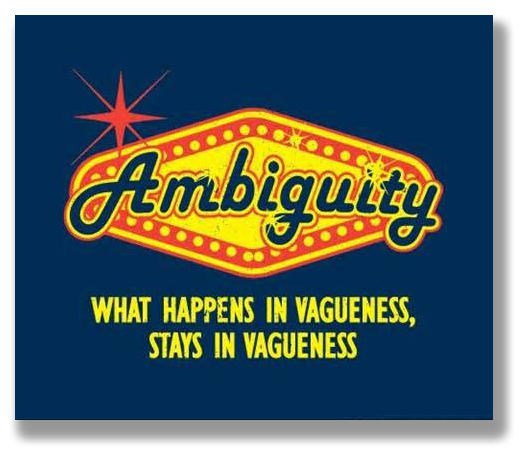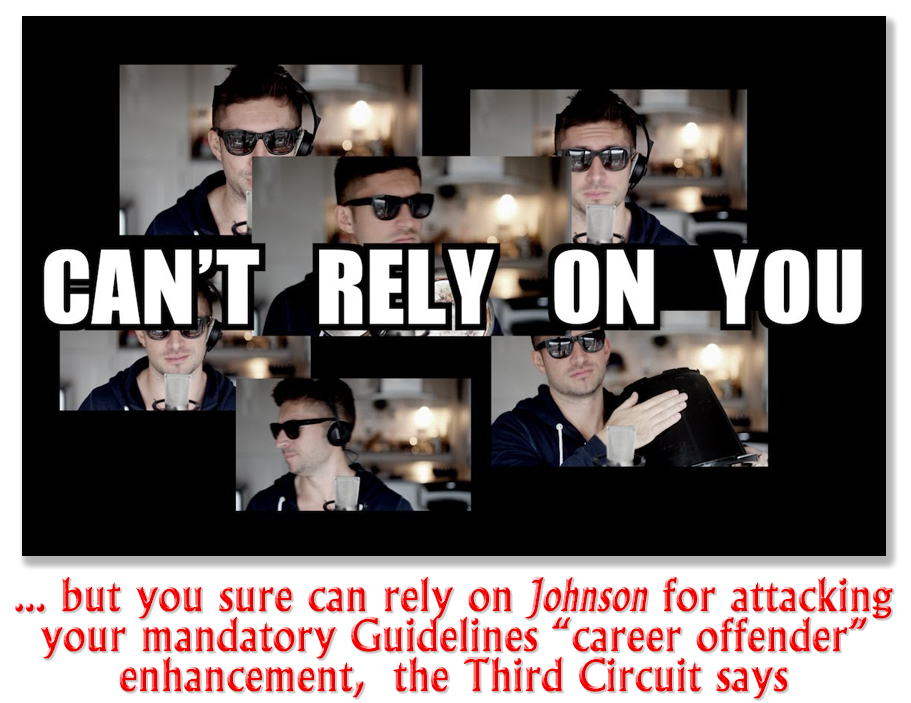THE DAVIS REPORT – AND A JOHNSON ‘CAREER OFFENDER’ DECISION
 Last week, typically the final slow week of summer, as vacationers return for a new school year and dreary office, was uncharacteristically busy for application of last June’s Supreme Court United States v. Davis decision.
Last week, typically the final slow week of summer, as vacationers return for a new school year and dreary office, was uncharacteristically busy for application of last June’s Supreme Court United States v. Davis decision.
In United States v. Barrett, the 2nd Circuit reluctantly held that a Hobbs Act conspiracy was not a crime of violence in light of Davis, despite the “murderous” nature of the particular conspiracy. For that reason, one of the defendant’s four § 924(c) convictions (for using a gun in a crime of violence) – the one related to the Hobbs Act conspiracy – was vacated. The Court sighed, “If there is anything Davis makes clear, it is the Supreme Court’s conviction that the substantially similar residual clause definitions for a violent crime in the Armed Career Criminal Act, in § 16(b), and in § 924(c)(3)(B) are unconstitutionally vague, and its aversion to new arguments that attempt to avoid that conclusion.”
In the 6th Circuit’s Knight v. United States decision, one of the defendant’s § 924(c) conviction was vacated because it was based on use of a gun during a kidnapping, but another based on assault and robbery of a postal employee under 18 USC § 2114 was held to require the use or threat of physical force. Thus, it is a crime of violence that supported the § 924(c) conviction.
 In United States v. Pervis, the 5th Circuit held that garden-variety bank robbery under 18 USC 2113(a) is a crime of violence under the § 924(c) “elements” test, and therefore supported the defendants’ multiple § 924(c) convictions.
In United States v. Pervis, the 5th Circuit held that garden-variety bank robbery under 18 USC 2113(a) is a crime of violence under the § 924(c) “elements” test, and therefore supported the defendants’ multiple § 924(c) convictions.
The 5th Circuit also handed down a disappointing holding that an inmate found to be a career offender under the old mandatory Guidelines could not file a second-or-successive § 2255 motion to challenge the “career offender” status because of the Supreme Court’s 2015 Johnson v. United States holding. Bobbie London was convicted in 1996 of drug offenses and sentenced to 327 months as a Guidelines career offender. One of the prior convictions making him a career offender clearly no longer counts after Johnson.
 Under Beckles v. United States, Bobbie would clearly not be entitled to relief if his sentence had been imposed under the advisory Guidelines. But he was sentenced nine years before United States v. Booker invalidated the mandatory Guidelines, so the judge had no choice but to hang the 327 months on him. Bobbie argued that a sentence determined by the vague language of the pre-Booker career offender residual clause violates due process.
Under Beckles v. United States, Bobbie would clearly not be entitled to relief if his sentence had been imposed under the advisory Guidelines. But he was sentenced nine years before United States v. Booker invalidated the mandatory Guidelines, so the judge had no choice but to hang the 327 months on him. Bobbie argued that a sentence determined by the vague language of the pre-Booker career offender residual clause violates due process.
The Circuit disagreed:
This asserted right, we think, is not dictated by Johnson; London’s assertion is more properly described as a “new right” to the extent that it is a right that has not yet been recognized by the Supreme Court. The Supreme Court has yet to decide whether a vagueness challenge can be raised under the pre-Booker Sentencing Guidelines. Instead, the Court’s decisions up until this point evince a distinction between statutes that fix sentences and Guidelines that attempt to constrain the discretion of sentencing judges…
In short, it is debatable whether the right recognized in Johnson applies to the pre-Booker Sentencing Guidelines—an administrative regime that governs a judge’s discretion to a range within the statutory minimum and maximum sentences. Consequently, London does not assert a right dictated by Johnson but instead asserts a right that would extend, as opposed to apply, Johnson to the pre-Booker Guidelines. His claim is therefore not entitled to the benefit of a new statute of limitations.”
United States v. Barrett, Case No. 14-2641-cr (2nd Cir. Aug. 30, 2019)
Knight v. United States, Case No. 17-6370 (6th Cir. Aug. 27, 2019)
United States v. Pervis, Case No. 17-20689 (5th Cir. Aug. 30, 2019)
London v. United States, Case No. 17-30675 (5th Cir. Aug. 29, 2019)
– Thomas L. Root







